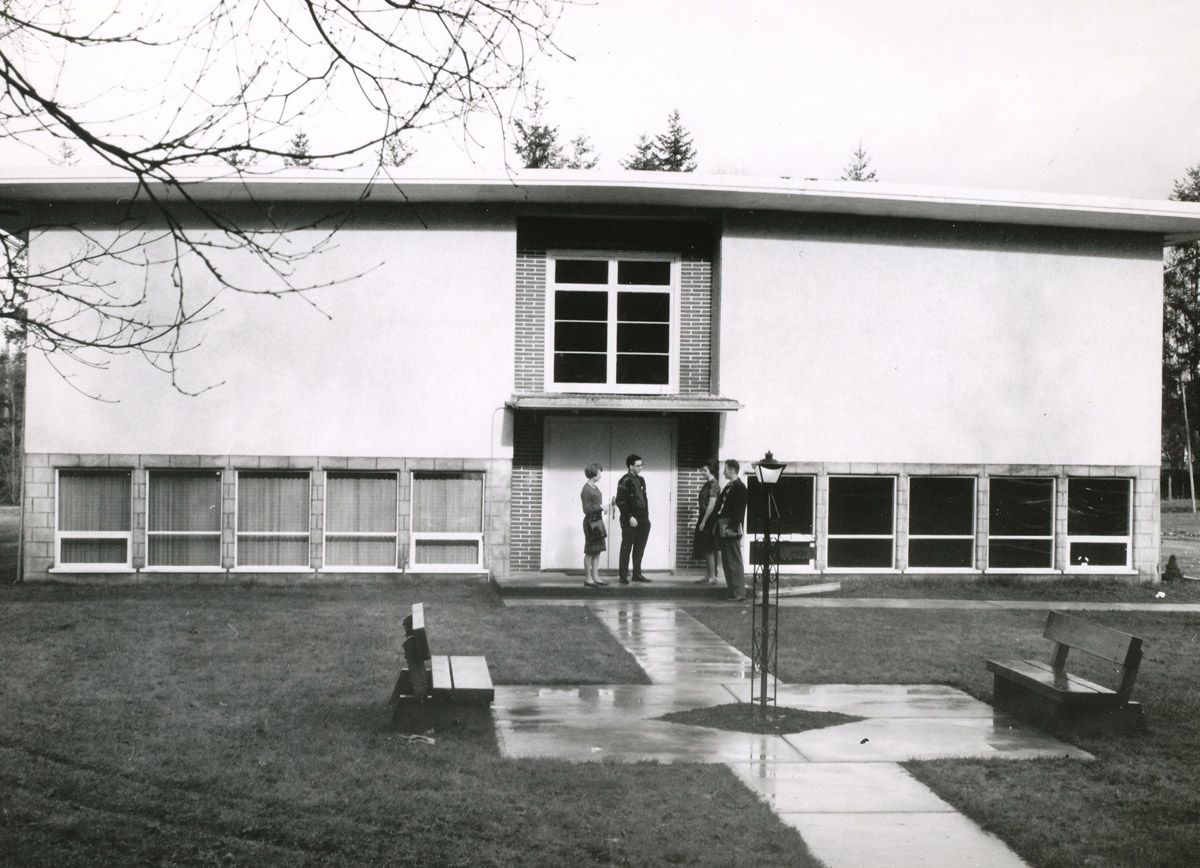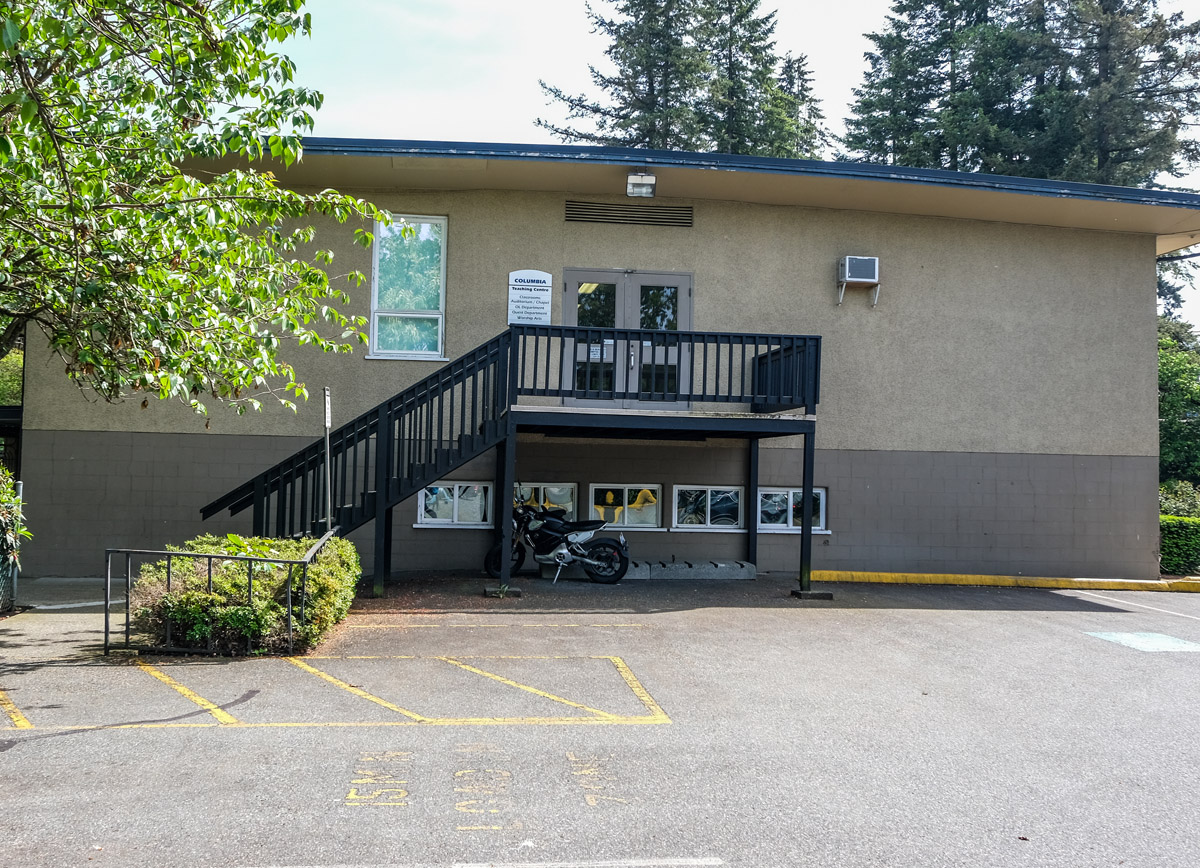Columbia Bible College
Columbia Bible College is an inter-Mennonite institution in British Columbia that upholds the Anabaptist tradition of regarding the Scriptures as the authoritative Word of God. It traces its lineage back to nine Mennonite Bible schools in the region. In the 1960s, two denominational schools, the Mennonite Brethren Bible Institute and the Bethel Bible Institute, faced challenges such as rising costs, aging facilities, and declining enrollments. After intense discussions, the Mennonite Brethren Conference of BC and the Conference of Mennonites in BC reached an agreement in 1970 to operate a single school. Initially called the Associated Mennonite Bible Institute, it became Columbia Bible Institute (CBI). Under the leadership of Peter R. Toews, CBI thrived, experiencing increased enrollment and expanding its curriculum. In 1982, the two conferences joined forces, leading to the establishment of a fully-fledged inter-Mennonite Bible institute. Eventually, CBI attained college status, and has since offered baccalaureate degrees. Today, rechristened as the Columbia Bible College, the school continues to prepare students for lives of discipleship, service, and ministry while maintaining its evangelical-Anabaptist identity.
* * *
Throughout history, Anabaptists have held the Scriptures in high regard as the authoritative Word of God. They have emphasized the collective discernment and guidance of Christians by this Word. Columbia Bible College (CBC), an institution that brings together the Mennonite Church British Columbia and the British Columbia Conference of Mennonite Brethren Churches, proudly carries the torch of this deep-rooted Bible training tradition. At various points, this tradition encompassed nine Mennonite Bible schools in British Columbia. The direct predecessors of CBC were the Mennonite Brethren Bible Institute (MBBI) and Bethel Bible Institute (BBI).
In the tumultuous 1960s, both MBBI and BBI faced significant challenges. Rising operating costs, aging facilities, declining enrollments, and student demands for a more relevant and satisfying learning experience put immense pressure on these institutions. The conferences responded by engaging in intensive study sessions to determine the future of these schools.
On May 2, 1970, the Mennonite Brethren Conference of BC and the Conference of Mennonites in BC entered into a five-year working agreement to operate a single school. The agreement stipulated that the Mennonite Brethren would retain ownership of the buildings and administration, but members from both conferences would be represented on the board and faculty. The curriculum was designed to meet the denominational needs of both conferences, emphasizing an evangelical Anabaptist perspective and a strong commitment to local church ministries and mission-oriented teaching. Initially known as the Associated Mennonite Bible Institute, the school was officially named Columbia Bible Institute (CBI) by the end of its first academic year.
Peter R. Toews served as the first president of CBI for eight years, and under his leadership, the partnership experienced early successes. Enrollment notably increased, reaching a record of 266 students in 1973. In 1975, a third year of studies was added to the curriculum, and additional residences were built to accommodate the growing student body.
By the end of the 1970s, it became evident that the two conferences could work together effectively, leading to a historic joint meeting in 1982. This meeting resulted in a full partnership where the ownership and development of CBI would be jointly managed. During the presidency of Roy Just, the first fully-fledged inter-Mennonite Bible institute in North America was established. President Just outlined an ambitious future for CBI, including the granting of baccalaureate degrees, the offering of continuing education courses, the establishment of a Center for Missions and a Christian Counseling Center, and the creation of a Center for Mennonite Studies.
Further institutional growth and maturity followed, leading to the elevation of the school to college status. This significant change necessitated internal upgrades, such as the formal application for accreditation with the American Association of Bible Colleges. In the fall of 1984, the CBI Society approved a third-year program and the granting of a Bachelor of Religious Education degree. In 1987, under the presidency of Walter Unger, the school officially became Columbia Bible College, and legal approval for college status was granted with the passing of the Columbia Bible College Act in the B.C. Legislature. This authorization allowed the college to confer theological degrees.
In the early 1990s, CBC achieved full accreditation with the Association for Biblical Higher Education (formerly the Accrediting Association of Bible Colleges). The college's successes extended to government certification for the Early Childhood Education Program and the establishment of an Outdoor Leadership major. By the end of the decade, CBC offered baccalaureate degrees in eight majors, with nearly 400 students enrolled. Surveys showed high student satisfaction, and approximately 50% of graduates found employment in fields related to their major at CBC. Graduates served in diverse church
In the tumultuous 1960s, both MBBI and BBI faced significant challenges. Rising operating costs, aging facilities, declining enrollments, and student demands for a more relevant and satisfying learning experience put immense pressure on these institutions. The conferences responded by engaging in intensive study sessions to determine the future of these schools.
On May 2, 1970, the Mennonite Brethren Conference of BC and the Conference of Mennonites in BC entered into a five-year working agreement to operate a single school. The agreement stipulated that the Mennonite Brethren would retain ownership of the buildings and administration, but members from both conferences would be represented on the board and faculty. The curriculum was designed to meet the denominational needs of both conferences, emphasizing an evangelical Anabaptist perspective and a strong commitment to local church ministries and mission-oriented teaching. Initially known as the Associated Mennonite Bible Institute, the school was officially named Columbia Bible Institute (CBI) by the end of its first academic year.
Peter R. Toews served as the first president of CBI for eight years, and under his leadership, the partnership experienced early successes. Enrollment notably increased, reaching a record of 266 students in 1973. In 1975, a third year of studies was added to the curriculum, and additional residences were built to accommodate the growing student body.
By the end of the 1970s, it became evident that the two conferences could work together effectively, leading to a historic joint meeting in 1982. This meeting resulted in a full partnership where the ownership and development of CBI would be jointly managed. During the presidency of Roy Just, the first fully-fledged inter-Mennonite Bible institute in North America was established. President Just outlined an ambitious future for CBI, including the granting of baccalaureate degrees, the offering of continuing education courses, the establishment of a Center for Missions and a Christian Counseling Center, and the creation of a Center for Mennonite Studies.
Further institutional growth and maturity followed, leading to the elevation of the school to college status. This significant change necessitated internal upgrades, such as the formal application for accreditation with the American Association of Bible Colleges. In the fall of 1984, the CBI Society approved a third-year program and the granting of a Bachelor of Religious Education degree. In 1987, under the presidency of Walter Unger, the school officially became Columbia Bible College, and legal approval for college status was granted with the passing of the Columbia Bible College Act in the B.C. Legislature. This authorization allowed the college to confer theological degrees.
In the early 1990s, CBC achieved full accreditation with the Association for Biblical Higher Education (formerly the Accrediting Association of Bible Colleges). The college's successes extended to government certification for the Early Childhood Education Program and the establishment of an Outdoor Leadership major. By the end of the decade, CBC offered baccalaureate degrees in eight majors, with nearly 400 students enrolled. Surveys showed high student satisfaction, and approximately 50% of graduates found employment in fields related to their major at CBC. Graduates served in diverse church


